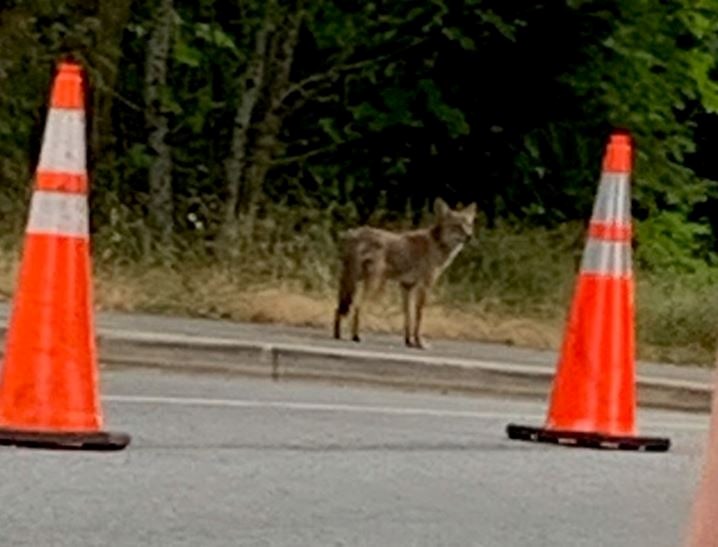The B.C. Conservation Officer Service (COS) reported Monday (Aug. 30) three new coyote attacks on people walking or running in Stanley Park over the previous handful of days.
The most recent reported attack took place early Monday morning, when, at approximately 5:30 a.m., a man was bitten by a coyote along the seawall near Second Beach. The victim suffered minor injuries to his leg, according to the COS.
On Friday, a runner in the vicinity of Lost Lagoon was bitten shortly after 6 a.m. That night, the COS says "a man walking along the seawall, near the Lions Gate Bridge, was bitten shortly after 9 p.m."
The public is urged to avoid Stanley Park, particularly during dawn or dusk hours, as there continue to be aggressive coyotes in the area.
Recently, in the wake of a long string of coyote attacks in the park, the COS published its responses to several frequently asked questions about its approach to managing the aggressive coyote population in Vancouver's iconic Stanley Park.
The COS says its strategies "include working with the Vancouver Park Board, area organizations, the municipality and wildlife biologists to consider all options for addressing and reducing coyote conflicts in the park." However, points out the Conservation Officer Service: "Management of the coyote population in the park is the responsibility of the Ministry of Forests, Lands, Natural Resource Operations and Rural Development."
Because access to the park is controlled by the Vancouver Park Board, the COS cannot impose an overnight ban for entry to Stanley Park. The service has "spent hundreds of hours patrolling Stanley Park to address public safety and will continue to do so." But in response to "What are the next steps? What’s the long-term strategy?" the COS repeats previously stated replies about the division of responsibility, its role in ongoing patrolling and reporting, and the continuing caution to the public to avoid the park.
The COS explains this level of aggression in coyotes against humans is "not normal" and is "usually the result of the animal becoming comfortable due to being fed, either directly or indirectly, by people."
"We cannot stress enough the importance of not feeding dangerous wildlife, as coyotes that have lost their fear of humans are a public safety risk," adds the COS.
To date, the COS has killed six coyotes in Stanley Park – two in January and four in July.
The public is asked to please report any aggressive coyote behaviour to the RAPP line at 1-877-952-7277.





